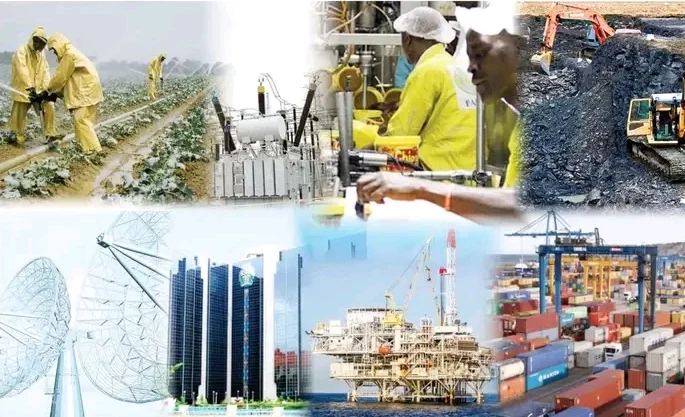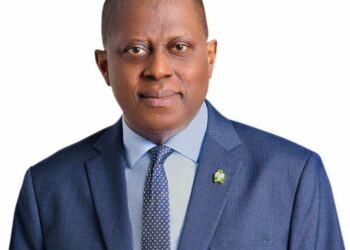Nigeria has been defined as being in a recession. Persistent decline in economic activity across the entire economy- decline in real personal income leading to fall in consumer purchase and demand, rise in employment statistics, and declining health of the manufacturing sector are proof that the recession is truly here.
Still hobbled by inadequate power supply, lack of infrastructure, delays in the passage of legislative reforms, an inefficient property registration system, restrictive trade policies, an inconsistent regulatory environment, a slow and ineffective judicial system, unreliable dispute resolution mechanisms, insecurity, and pervasive corruption, Nigeria indeed has an uphill task to reverse the climate of decline and want, and foster prosperity and growth in the economy.
To this end, members of the NATIONAL ECONOMY Board of Economists have canvassed on the need for the fundamentals of the nation’s economy to be redefined and strengthened.
The Board , noting that drastic essential policy measures that should be adopted and strictly implemented–liberalisation and privatisation especially–have been sidestepped, argued also that Executive Orders taken to improve the ease of doing business have been too little and therefore not made major impact.
According to them, these enabled the country to improve its ranking on the 2020 Ease of Doing Business Report to 131 from 165 in 2019, and it is not enough, they maintained.
The seasoned economists, submitted that lack of diversification, the saving-investment gap, and poor revenue generation, especially foreign exchange earnings to pay for imports are severe constraints to Nigeria’s economic growth.
These they opined, required robust policy initiatives by the federal and state governments to attract investments, block the massive revenue leakages and drastically reduce the size and cost of governance. They also agreed that macroeconomic policies must be designed to achieve real development goals beyond the traditional narrow goals of price stability, emphasising that macroeconomic and sectorial policies must be conceived as tools to stimulate industrial policy for structural transformation. Thus, the setting of goals and targets should be guided by careful examination of the country’s endowment from a dynamic comparative advantage.
In addition also, they were of the view that science, technology and innovation are important drivers of economic dynamism and determine both the level and trend of productivity in an economy over time.
According to them, efficiency in this sector enables an economy move up the value chain faster and increase the share of high-technology content output in their total production.This also in addition to offering opportunities to break into standards and values hitherto beyond reach.
They said it is critical to mainstream science, technology, and innovation in the education system, and reconfigure the national policy framework, to make it a major driver in the productive capacity building strategy.
They further stressed that the current mono-cultural complexion of the economy does not lend itself to stability and meaningful development. A skewed and unproductive economic system, they maintained, is a sure recipe for instability and disaster. Beyond that, they advised that the nation’s currency, needs to be strengthened to ensure equilibrium in the external account. And the capital market must be encouraged to grow in breadth, depth and resilience.
Sharing similar sentiment, President Muhammadu Buhari, in 2016, wrote, in part, “The old order was based on an unsustainable commodities supercycle. While the boom had many positives and contributed to Nigeria becoming Africa’s largest economy, it fostered an epidemic of corruption and inefficiency. Foreign businesses and financial institutions also benefited as some people spent and sometimes hid huge sums abroad, lifted by the rising tide of oil exports and dollar revenues.
“We are an oil-rich nation that imports most of our gasoline. We are a farming nation that imports most of our basic food staples. This is simply not acceptable or sustainable.
“Our solutions must be in proportion to the challenges. Fundamental change takes time and we are driving not one but three changes to reposition Nigeria for inclusive growth — restore trust, rebalance the economy, and regenerate growth.”
Those lofty comments were penned at the dawn of this administration. Now at its twilight, and others in the past, the issues bedeviling the Nigerian economy persist.
Professor Tayo Bello of Adeleke University, commenting on turning Nigeria around, noted that one can migrate from one political party to another, but no one can migrate or decamp from an economy. He said the major turnaround Nigeria needs right now is economic strategy, economic rejuvenation and reengineering, emphasising that given the current situation, individuals need personal adjustment programmes, and family adjustment programmes to cope.
On the national scene, he said the government must, as a matter of urgency, deregulate the petroleum industry completely. He said the situation where the federal government is borrowing money to pay subsidies is not wise.
He also said the level of corruption in Nigeria is a trend that has to be turned around. He also said that the rate of expenditure for foreign education has to be turned around. He noted that last year Nigerians paid 2.5 billion British pounds in fees for foreign education.
Bello also said the federal government must continue to invest in infrastructure. He added the Nigeria must have a sustainable energy policy. “If there is improvement in energy supply in the country, the rate of industrialisation will improve as well,” he said.
Bello also stressed that the issue of security must be tackled head-on as a major turnaround objective of the federal government. He stated that insecurity is stifling investment in agriculture and other sectors that are major drivers of the economy. He said insecurity is also affecting the country’s socio-economy as it is causing uncontrolled migration across the country.
The chief executive of Economic Associates, Dr. Ayo Teriba, also commenting on turning Nigeria’s fortunes around, said ‘we have to look at the policy pressure-points.’ He cited reports released by global risk rating agencies that have either placed Nigeria under review for downgrade or have downgraded the credit risk profile of Nigeria.
He said Fitch, Moody’s and other rating agencies have expressed worry about deteriorating external financing, inadequate supply of foreign exchange, unstable exchange rate.
“Second, falling government revenue, third, rising interest payments on debt, and fourth, rising external debt stock. Anything the government can do to solve any of these problems would be welcome.
“Sadly, whatever the government is doing right now is not solving any of these problems. We have low revenue, and whatever the government is earning cannot be spent to fight poverty; it has to be used to pay interest on debt. Unless the government can get more revenue net of interest payment, things will keep getting worse,” he said.
He said added to that, the government is proposing to borrow N11 trillion this year, and to securitise N22 trillion of its debt owed the Central Bank of Nigeria, which is more or less proposing to issue additional debt of N33 trillion, which would be N77 trillion, 75 per cent increase in debt stock before the administration leaves in May, which is worrying.
The government has to adjust that strategy to avoid reducing interest payment from N6 trillion to 10.5 trillion.
Speaking about Nigeria’s mounting debt stock, a lecturer at the Department of Banking and Finance, Nnamdi Azikiwe University, Dr. Felix Echekoba, said at such a critical time, Nigeria could resurrect her many dead assets to clear out her huge debt. He said Nigeria currently owes about $105 billion debt, but has nothing less than $500 billion in dead assets strewn across the country.
PriceWaterhouseCooper (PWC) had estimated that Nigeria holds between $300 billion and $900 billion worth of dead capital in residential real estate and agricultural land alone.
Echekoba said the current level of debt build-up and rising cost of debt servicing is not sustainable, and needs to be turned around.
The International Monetary Funds (IMF) had said Nigeria could enable millions of citizens to escape poverty over the next decade through enacting bold reforms designed to boost economic productivity.
A report, Nigeria Economic Update: ‘Jumpstarting Inclusive Growth: Unlocking the Productive Potential of Nigeria’s People and Resource Endowments, ‘said the country’s productivity–how successfully the economy transforms land, labour, capital and other inputs into goods and services–is low compared to peer countries, hindering economic growth, job creation, and living standards. Without robust productivity growth, the report warned that living standards will continue to deteriorate, and the number of people living in poverty will continue to rise, increasing by more than 30 million by 2030.
The update analyses the evolution of productivity in Nigeria and identifies the policies and institutions that can help accelerate Nigeria’s economic expansion and create new job opportunities. Also outlined in the report are four priority areas that would lay the foundation for Nigeria’s transition to a new economic model that more effectively uses its large, young population and abundant natural resources to support sustainable growth and poverty reduction:
Ensure policy transparency and predictability, which will be critical to reduce investment risk and promote growth outside the extractive industry.
Enhance factor quality by investing in infrastructure, strengthening land tenure security, improving educational outcomes, liberalising the trade regime and enhancing trade and transport facilitation to help develop value chains and facilitate the efficient reallocation of factors of production, making Nigeria more cost-competitive
Reduce regulatory discretion to help attract foreign and domestic investment to the non-oil sector, encourage competition, and promote formalisation
Improve access to finance, which could enable new firms to compete with incumbents and allow more productive firms to scale up their operations.
Also speaking with NATIONAL ECONOMY turnaround Nigeria needs, a social affairs analyst, Dr. Cosmos Jemba, said Nigeria needs a 180 degree turnaround on the quality of her leadership. Jemba noted that Nigeria’s quality of leadership is her bane. He said if it were not for bad leadership we would not be discussing the issue of turnaround in the first place, stressing that it is not too late to turn the country’s fortunes around.
Moses Sowore, an economist, said solving the problems in the power sector would resolve half of Nigeria’s economic woes. He noted that the constant dillydallying in the power sector has to be tackled head-on.





